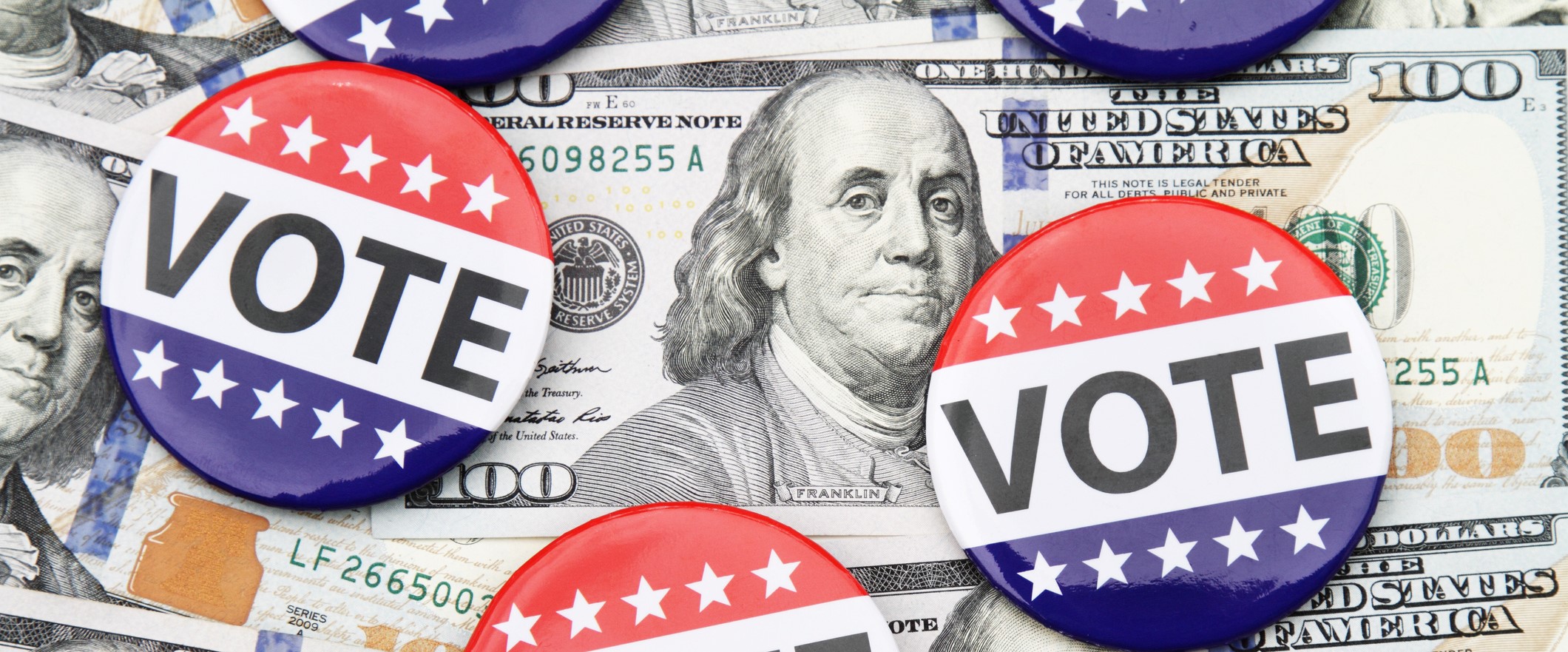"Hating the government is not an investment strategy."– Brian Levitt
Prior to the COVID-19 outbreak, we all thought the 2020 presidential election would be the lead news story of the year. And although the coronavirus is at the top of everyone’s mind, the election has crept back into our conversations and political animosity has once again reached a crescendo. As voters try to imagine the future American paradise that would arise from their side winning, or the national disaster that would result from a loss, their thoughts invariably turn to the potential economic consequences of these different scenarios and the resulting impact on their investment portfolios.
While it is natural to have certain feelings about what the market should do if your candidate wins or loses, it is important to be aware of the facts: presidential election results, regardless of which party wins, do not predict subsequent investment returns. Although you might dislike the incumbent, or the challenger, or the government in general, investment markets are generally agnostic about which party is in power, and an emotional reaction to an election outcome is not a firm foundation for an investment strategy.
Fear and Loathing
The two most recent presidents provide a great case study in support of this point. In 2008, Barack Obama was elected to the presidency despite the opposition’s contention that he was a socialist community organizer with limited political experience and no knowledge of international affairs. Yet the US stock market posted above-average returns throughout his presidency. In 2016, Donald Trump was elected to the presidency despite the opposition’s contention that he is a megalomaniac with no political experience and no knowledge of international affairs. Yet the US stock market also enjoyed above-average returns from the beginning of his presidency through the end of 2019, before the coronavirus ended the bull market around the globe
“Our best advice is to keep your politics separate from your investment strategy.”
If you are a dedicated member of one of the two main parties, at this point you are probably viewing the positive market returns under your party as a foregone conclusion, while you search for a supernatural explanation of the shocking market returns under the other party (yes, this works in both directions). However, the truth is that, historically, the party affiliation of the person in the White House has not been an accurate predictor of the future direction of the stock market.
Is it different this time?
As the memory of the Trump impeachment hearings lingers and the presidential election approaches, the vitriolic atmosphere of American politics feels more like a knife fight than a rational political discourse, and it seems easier now than in the past to simply hate the other side. The consensus belief is that American politics is more divided and nastier than at any time in our history. Is this reason for concern?
While we certainly agree that the current political environment is “polarizing”, to put it politely, we also caution against concluding that this polarization is a new feature of American politics. It certainly is not. In 1800 when Thomas Jefferson challenged his former friend John Adams for the presidency, Adams’ campaign claimed that a Jefferson victory would lead to “murder, robbery, rape, incest, and adultery…practiced throughout the land.” Jefferson’s campaign replied by informing the public (falsely) that Adams was “busy importing mistresses from Europe or trying to marry one of his sons to a daughter of King George.” The specific content of the accusations may have changed since 1800, but the spirit is, regrettably, the same.
Our best advice is to keep your politics separate from your investment strategy. Even if it looks like your side might lose the election, history has shown that getting out of the stock market as an act of spite or an expression of disgust is usually not a sensible investment decision. An investment strategy based on a long-term view of capital markets, sound diversification, and your own personal goals is a far better option. And although it is certainly true that contemporary American politics are divisive and vicious, and you certainly do not have to like it if your side loses, your investments may very well disagree with you.
The original version of this article was written by Heritage for the May 2020 edition of The Light, a local magazine serving Broward County, Florida.


